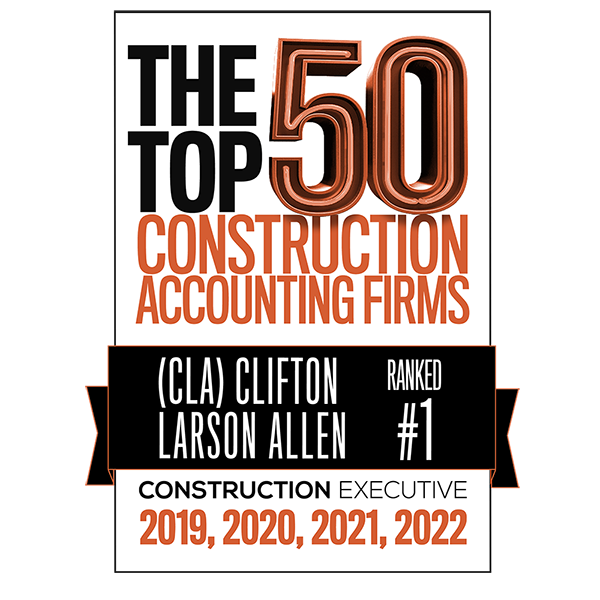In Time for the Holidays, the FASB Proposes an Accounting Standards Update Related to Common Control Leases

Keeping with the Rocky theme, on November 30, 2022, the FASB issued a proposed Accounting Standards Update (ASU) to respond to concerns associate with accounting for common control leasing arrangements. The FASB staff has been working diligently to issue this proposed ASU and they appear to follow the philosophy of Rocky Balboa in the 1976 film Rocky, “to you it’s Thanksgiving, to me it’s Thursday.”
We discussed the FASB’s decision to amend Topic 842 related to common control leasing arrangements in our blog Leases, If FASB Can Change, We All Can Change.
The proposed ASU addresses two issues related common control leasing arrangements as follows:
- Terms and Conditions
Why: Topic 842 does not differentiate between common control leases and unrelated party leases when determining classification and accounting for the leases. Topic 842 introduced the concept of legal enforceability. This consideration creates additional complexity for common control leases and is a change in practice from Topic 840 which included economic substance considerations. The FASB recognized the potential complexities associated with related party leases and proposed this amendment to respond to these concerns.
Who: The expedient is available for private entities and most not-for-profits (non-conduit debt obligors)
What: The practical expedient allows an entity to use the written terms and conditions of a related party arrangement between entities under common control to determine:
- Whether a lease exists and, if so,
- The classification of and accounting for that lease.
An entity electing that practical expedient would be allowed to elect the practical expedient on an arrangement-by-arrangement basis.
Transition: Entities that have not yet adopted Topic 842 on or before the effective date of a final Update would follow the transition requirements of Update 2016-02 (the original Update on leases) for the amendments in this proposed Update using the same transition method elected to apply Topic 842.
For entities that have adopted Topic 842 before the effective date of a final Update, an entity would be allowed to apply the amendments in this proposed Update either:
- Prospectively to arrangements that commence or are modified on or after the date that the entity initially applies the proposed amendments
- Retrospectively to the beginning of the period in which the entity initially applied Topic 842 for arrangements that exist at the date of adoption of a final Update. The proposed amendments would not be applicable for arrangements no longer in place at the date of adoption of a final Update
2. Accounting for Leasehold Improvements
Why: Similar to legacy guidance, ASC 842 requires leasehold improvements to be amortized by a lessee over the shorter of the remaining lease term or the economic useful life of the asset. Many common control lessees used a substance over form approach when considering the entities ability to renew leases based on what was in the interest of the common control entities even when a formal lease agreement was not in place. In many cases common control lessees amortized leasehold improvements over a longer life than the lease term if the asset had an expected longer useful life. This raised concern that the adoption of ASC 842 would result in financial reporting that would not match the economics of the arrangement when the lease term is shorter than the life of the asset.
Who: All entities
What: The amendments in this proposed Update would require that leasehold improvements associated with leases between entities under common control be:
- Amortized by the lessee over the economic life of the leasehold improvements (regardless of the lease term) as long as the lessee controls the use of the underlying asset (the leased asset) through a lease. However, if the lessor obtained the right to control the underlying asset through a lease with another entity not within the same common control group, the amortization period may not exceed the lease term associated with the lessor’s lease with the other entity.
- Accounted for as a transfer between entities under common control through an adjustment to equity (or net assets for not-for-profit entities) if, and when, the lessee no longer controls the use of the underlying asset.
Additionally, those leasehold improvements would be subject to the impairment guidance in Topic 360, Property, Plant, and Equipment.
Transition: Entities that have not yet adopted Topic 842 on or before the effective date of a final Update would follow the transition requirements of Update 2016-02 for the amendments in this proposed Update using the same transition method elected to apply Topic 842. However, an entity electing the retrospective transition method to the beginning of the period of adoption in applying Topic 842 may elect to apply the amendments in this proposed Update using either of the prospective approaches described below to avoid retrospectively accounting for leasehold improvements.
For entities that have adopted Topic 842 before the effective date of a final Update, an entity would be allowed to apply the amendments in this proposed Update using one of the following methods:
- Prospectively to all new leasehold improvements recognized on or after the date that the entity initially applies the proposed amendments
- Prospectively to all new and existing leasehold improvements recognized on or after the date that the entity initially applies the proposed amendments, with any remaining unamortized balance of existing leasehold improvements amortized over their remaining economic life determined at that date
- Retrospectively to the beginning of the period in which the entity applied Topic 842 for leasehold improvements that exist at the date of adoption of a final Update, with any leasehold improvements that otherwise would not have been amortized recognized through a cumulative-effect adjustment to the opening balance of retained earnings at the beginning of the fiscal year of adoption.
Additional Matters
- Effective date – To be determined by the FASB, but my hope is that the amendments are effective upon issuance. I do not expect adoption to require significant effort.
- The proposal includes some additional disclosure requirements related to the adoption of the alternative in issue 1, which seem reasonable. In addition, further disclosure is required related to elections made in issue 2.
- The comment deadline is January 16, 2023
In closing, I am thankful for the FASB proposing these updates and to all stakeholders who expressed concerns related to common control leasing arrangements. In Rocky Balboa fashion, “I just also wanna thank FASB. Except for the deferral of the adoption of Topic 842, this is the greatest night in the history of accounting. I just wanna say one thing to standard setters and stakeholders: YO, ADRIAN! WE DID IT!”
We are available to assist if you have any questions or needs.
Michael A. (Mike) Westervelt is a principal with CLA with over 25 years of experience and a past Chair of the AICPA’s PCPS Technical Issues Committee (“TIC”). Mike is a National Assurance Principal and Construction Industry Assurance Leader. Mike specializes in thought leadership, ethics, independence, financial reporting, client service and accounting consulting for U.S. and international clients. He has managed relationships nationally and internationally for entities in the construction, manufacturing, hospitality, commercial service and healthcare industries. Mike is also a member of the AICPA’s Accounting and Review Service Committee (ARSC) and volunteers as a mentor for American Corporate Partners (ACP). Mike graduated from Iona College with a Bachelor of Arts in Accounting. He is a Certified Public Accountant licensed by the states of North Carolina and New York. Mike lives in Charlotte, NC and enjoys spending time with his family and an avid member of F3 who’s credo is “Leave no man behind, but no man where you find him.”


Comments are closed.